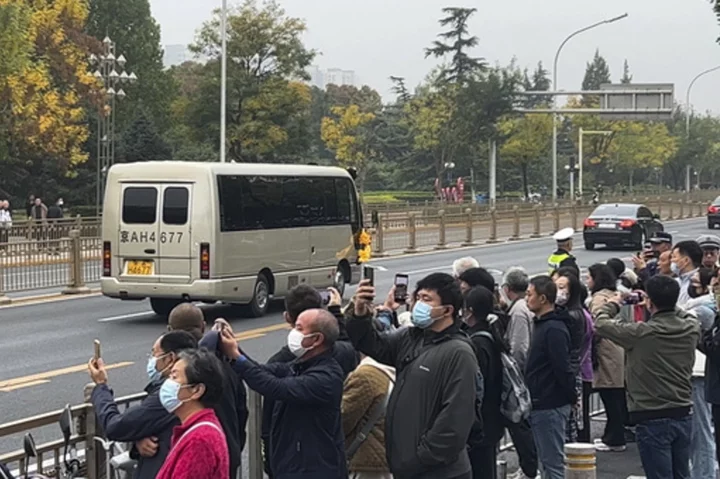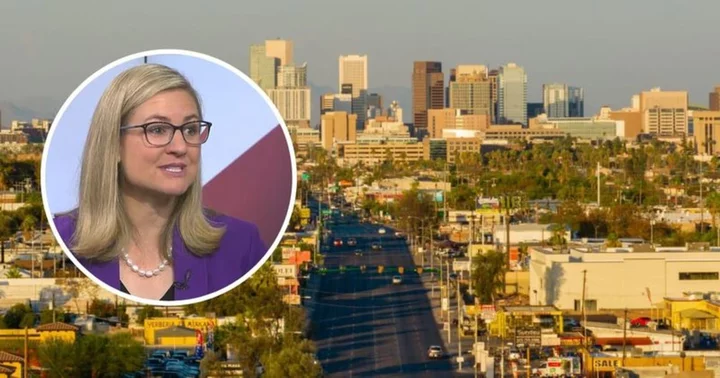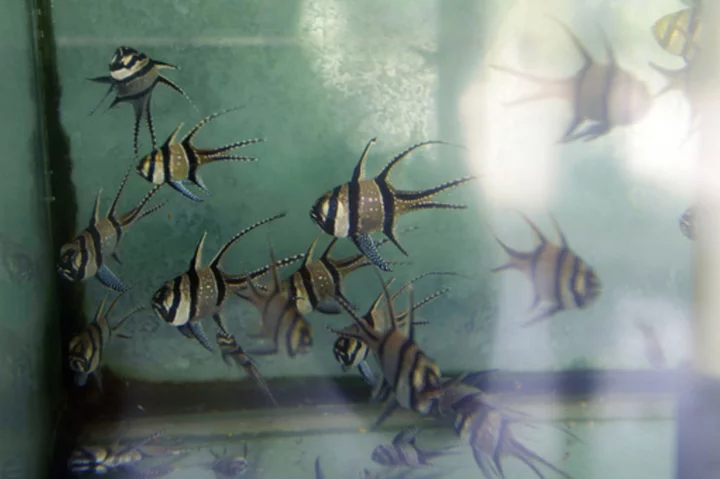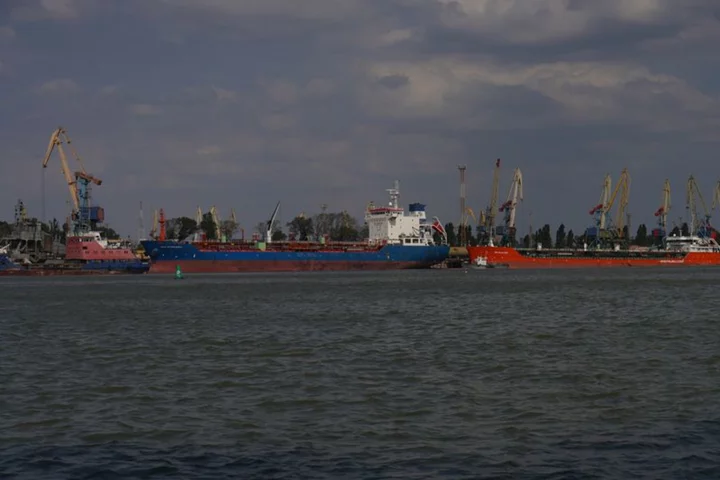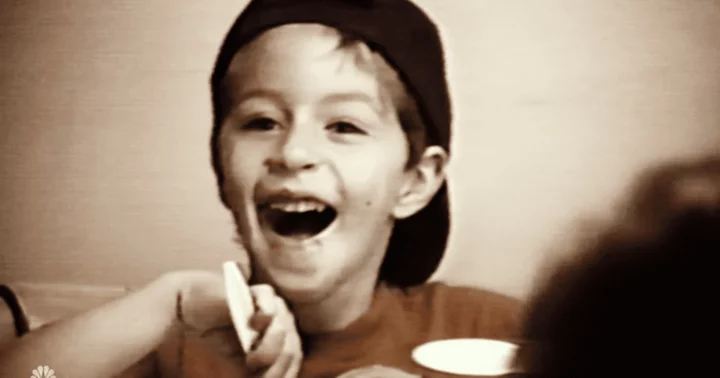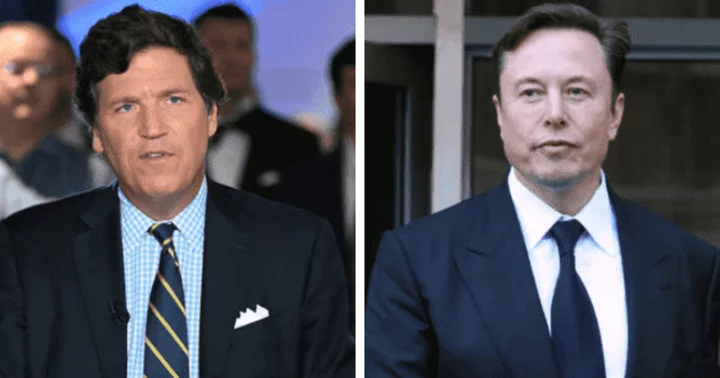TAIPEI, Taiwan (AP) — Hundreds, possibly thousands, of people gathered Thursday near a state funeral home in Beijing as former Premier Li Keqiang was put to rest, while a steady stream of mourners showed their respects with scores of bouquets at the ex-leader's childhood home in central China.
Li, an English-speaking economist, died Oct. 27 of a heart attack at age 68. State media had said he would be cremated Thursday but didn’t mention funeral plans. According to precedent, retired high-level officials usually lie in state briefly as top leaders pass the body and offer wreaths of white flowers, the traditional color of mourning.
In front of the funeral home, plainclothes and uniformed police lined the roadway in the Chinese capital's west for hundreds of meters (yards), blocking traffic and telling people to move along and watching for the presence of any unofficial or foreign media. Police also moved people away from a subway station near the Babaoshan cemetery where state funerals are held and many top leaders are buried.
A forest of phone cameras rose as the cortege consisting of several buses passed shortly after 8 a.m. (0000 GMT).
Large crowds also gathered in Li's hometown of Hefei in the central province of Anhui, where a steady stream of people, some wearing black, were permitted to walk down Hongxing Road to lay small bouquets of white and yellow chrysanthemums and pay their respects by joining their palms and bowing in front of the three-story shophouse where Li spent his childhood.
The scene was similar to that immediately after Li’s death was announced — viewed by some as a protest against Li’s political sidelining by increasingly authoritarian party leader Xi Jinping.
Such spontaneous gatherings are almost never permitted in China, but the authorities appeared to be taking a relatively light approach, possibly to avoid sparking a larger incident.
“The death was so sudden and we came here to see him off,” said Hefei resident Liu Ying. She brought her 7-year-old son and planned to meet up with a friend who was bringing her daughter so they could go together to lay flowers.
Liu said her son only vaguely knows who Li is. “He does not understand now but he will when he grows up,” she said.
Another woman said she and two friends dressed in black traveled Wednesday from the neighboring province of Jiangsu and had laid bouquets three times. She described Li as “a good premier loved by the people.”
Li was China’s No. 2 leader and helped guide the country's economy for a decade before being dropped from the Communist Party’s all-powerful Politburo Standing Committee in October 2022. He left office in March, despite being two years below the informal retirement age of 70.
“He did concrete things for the people," said the woman, who was unable to give her name before being moved along by men in blue vests, apparently plainclothes police officers.
The small street was closed to traffic, and visitors proceeded under the watchful eye of a large team of the men in blue vests, who ordered the crowd not to loiter. From behind the line the men formed, hundreds of other bystanders looked on and filmed on their phones.
At least one delivery person wearing a motorcycle helmet and carrying an armful of bouquets sent from Jiangsu was stopped and questioned by the men in blue vests.
By noon, the U-shaped mound of flowers had grown to more than a meter (yard) high.
Flags, including the nation’s most famous standard that flies over Tiananmen Square in the heart of the Chinese capital, were lowered to half-staff at government and party offices around the country and at Chinese embassies and consulates abroad.
Li rose from relatively humble roots to attend prestigious Peking University following the end of the 1966-1976 Cultural Revolution and rose steadily up the ranks, eventually holding several provincial high offices before being transferred to Beijing. At one time he was favored for the top spot, before being eclipsed by Xi, a member of the prestigious “princeling” class, as the descendants of Communist luminaries are known.
Though Li showed little zeal for reform and his time in office was marked by numerous crises such as the COVID-19 pandemic, he was seen as an alternative to Xi. Li was left with little authority after Xi made himself the most powerful Chinese leader in decades by eliminating presidential term limits and tightening control over the economy and society.
At the 2022 party congress, Xi awarded himself a third five-year term as party leader and filled the top party ranks with loyalists. The No. 2 slot was filled by Li Qiang, the party secretary for Shanghai, who lacked Li Keqiang’s national-level experience and later told reporters that his job was to carry out whatever Xi decided.

